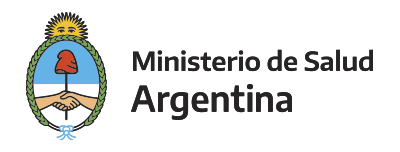Por favor, use este identificador para citar o enlazar este ítem:
http://sgc.anlis.gob.ar/handle/123456789/399| Título : | Benznidazole therapy modulates Interferon-γ and M2 Muscarinic receptor autoantibody responses in Trypanosoma cruzi-Infected children | Autor : | Cutrullis, Romina A. Moscatelli, Guillermo F. Moroni, Samanta Volta, Bibiana J. Cardoni, Rita L. Altcheh, Jaime Corral, Ricardo S. Freilij, Héctor Petray, Patricia B. |
Palabras clave : | Trypanosoma cruzi;Enfermedad de Chagas;Anticuerpos | Fecha de publicación : | 2011 | Journal: | PloS one | Resumen : | Objective The presence of autoantibodies with adrenergic and cholinergic activity, capable of triggering neurotransmitter receptor-mediated effects, has been associated with pathogenesis in T. cruzi-infected hosts. The goal of this study was to investigate the production of anti-M2 muscarinic receptor autoantibodies (Anti-M2R AAbs) as well as the IFN-γ profile in children at the early stage of Chagas disease, and to examine whether trypanocidal chemotherapy with benznidazole (BZ) could modify both response patterns. Methods This study comprised 30 T. cruzi-infected children (mean age: 13.8 years) and 19 uninfected controls (mean age: 12.7 years). Infected patients were treated with BZ and followed-up. Blood samples collected at diagnosis-T0, end of treatment-T1, and six months later-T2 were analysed by ELISA for detection of Anti-M2R AAbs and circulating levels of IFN-γ. Results At T0, anti-M2R AAbs were demonstrated in 56.7% of T. cruzi-infected patients, whereas uninfected controls were 100% negative. The average age of Anti-M2R AAbs+ patients was higher than that from negative population. Infected children also displayed significantly stronger serum IFN-γ responses than controls. Upon BZ treatment, a significant linear decreasing trend in Anti-M2R AAb reactivity was recorded throughout the follow-up, with 29.7–88.1% decrease at T2. IFN-γ circulating levels also declined by T2. Conclusion Anti-M2R AAbs and IFN-γ raise early during chagasic infection in children and are downmodulated by BZ therapy. These findings reinforce the usefulness of early BZ treatment not only to eliminate the parasite but also to reduce potentially pathogenic immune responses. |
Descripción : | Fil: Cutrullis, Romina A. Hospital de Niños Ricardo Gutiérrez. Servicio de Parasitología y Enfermedad de Chagas; Argentina. Fil: Moscatelli, Guillermo F. Hospital de Niños Ricardo Gutiérrez. Servicio de Parasitología y Enfermedad de Chagas; Argentina. Fil: Moroni, Samanta. Hospital de Niños Ricardo Gutiérrez. Servicio de Parasitología y Enfermedad de Chagas; Argentina. Fil: Volta, Bibiana J. ANLIS Dr.C.G.Malbrán. Instituto Nacional de Parasitología Dr. Mario Fatala Chaben; Argentina. Fil: Cardoni, Rita L. ANLIS Dr.C.G.Malbrán. Instituto Nacional de Parasitología Dr. Mario Fatala Chaben; Argentina. Fil: Altcheh, Jaime. Hospital de Niños Ricardo Gutiérrez. Servicio de Parasitología y Enfermedad de Chagas; Argentina. Fil: Corral, Ricardo S. Hospital de Niños Ricardo Gutiérrez. Servicio de Parasitología y Enfermedad de Chagas; Argentina. Fil: Freilij, Héctor. Hospital de Niños Ricardo Gutiérrez. Servicio de Parasitología y Enfermedad de Chagas; Argentina. Fil: Petray, Patricia B. Hospital de Niños Ricardo Gutiérrez. Servicio de Parasitología y Enfermedad de Chagas; Argentina. |
URI : | http://sgc.anlis.gob.ar/handle/123456789/399 http://www.ncbi.nlm.nih.gov/pmc/articles/PMC3205037/pdf/pone.0027133.pdf |
ISSN : | 1932-6203 | Derechos: | Open Access Creative Commons Attribution 4.0 International License |
| Aparece en las colecciones: | snrd Publicaciones INP |
Ficheros en este ítem:
| Fichero | Descripción | Tamaño | Formato | |
|---|---|---|---|---|
| PLoSONE,2011,6(10),e27133.pdf | 127.01 kB | Adobe PDF |  Visualizar/Abrir |
Visualizaciones de página(s)
172
comprobado en 17-feb-2026
Descarga(s)
90
comprobado en 17-feb-2026
Google ScholarTM
Consultar
Este ítem está sujeto a una licencia Creative Commons Licencia Creative Commons


